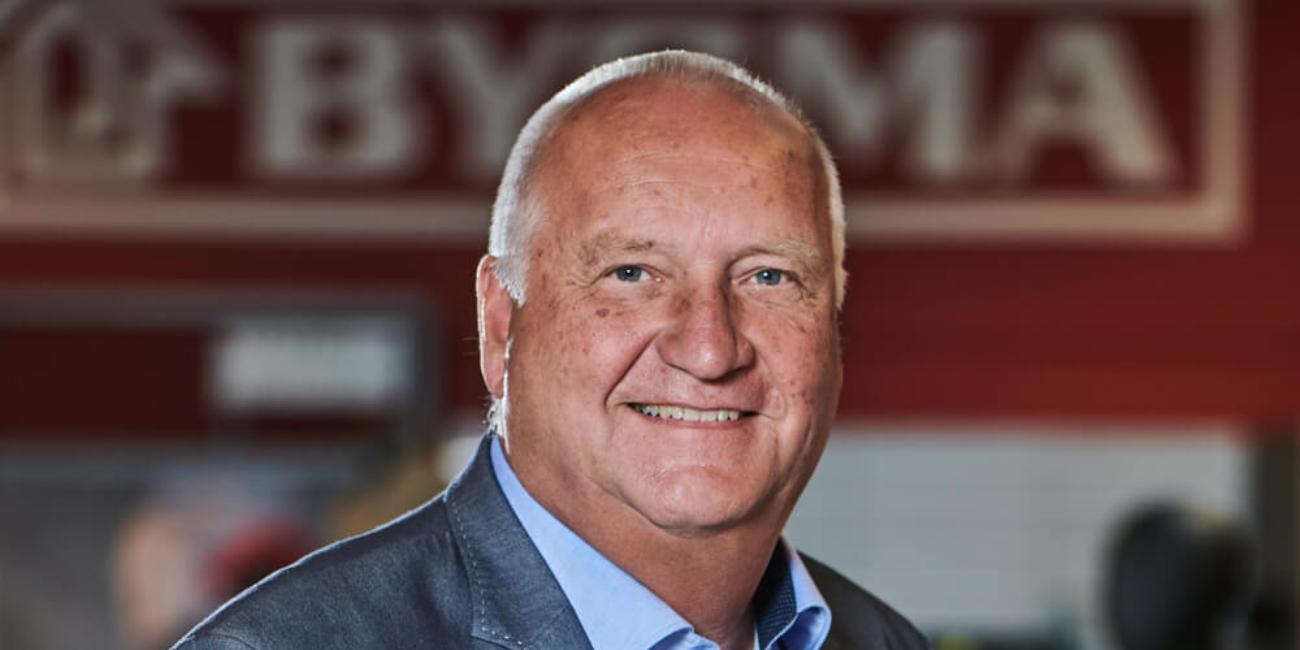Biogas trucks with electric cranes for a greener future
The Danish builders’ merchants, Bygma, wishes to contribute to a greener construction industry. Therefore, the company is investing in the industry's first fully electric truck and biogas trucks with electric-powered HMF cranes. An investment that makes Bygma's deliveries more environmentally friendly, less noisy and helps the company's CO2 reduction targets become reality.
For the past 15 years, Bygma has been using HMF cranes. This means that today hundreds of Bygma trucks are driving around with a red HMF crane fitted. The red-white crane trucks help professional craftsmen all over Denmark with the unloading of all kinds of building materials.
The latest additions to Bygma’s fleet are remarkable. Soon, Bygma's first biogas trucks with electric loader cranes will be driving on the Danish highways. And the electric-powered cranes are from HMF.
According to Bygma's Purchasing director, Preben Nielsen, the investment in electric vehicles is an important part of the company's goal to reduce CO2 emissions from its own operations.
"A biogas truck contributes significantly to CO2 reduction; in fact, as much as 90% compared to diesel depending on the type of gas used. That's why we made this investment," says Preben Nielsen, and adds:
"Bygma's new trucks will run on biogas, which offers the greatest savings on CO2. As the truck is stationary while work is being carried out with the crane - which is often used many times a day - we think it’s obvious to combine the two technologies."
 The close cooperation is crucial for Bygma to continue their work with HMF according to purchasing director, Preben Nielsen.
The close cooperation is crucial for Bygma to continue their work with HMF according to purchasing director, Preben Nielsen.
A silent, emission-free, and flexible loader crane
An electric or biogas truck may be more expensive, but there are also many advantages to switching to the greener technology, according to Preben Nielsen.
"The electric crane is almost completely silent, and since the truck doesn’t emit CO2 when it is switched off, we significantly reduce both emissions and engine noise. The new trucks therefore offer a significant noise reduction compared to traditional trucks, which is very important in connection with construction sites in urban areas."
The new e-powered HMF cranes can thus add being quiet and CO2 neutral to their list of characteristics. A list, which already includes reliability, minimum maintenance, and ease of use if you ask Preben Nielsen.
"We’ve been using HMF cranes for about 15 years, so it goes without saying that we’re satisfied with the loader cranes," he says, adding:
"We choose HMF cranes first and foremost because they are reliable and have an efficient maintenance setup. In addition, our drivers are pleased with the crane's extra “bend in the back” which makes it flexible to work with."
"Finally, the close cooperation is also crucial, and the reason for us to continue our work with HMF," the Purchasing Director adds.
Anticipates a fossil-free future
The construction industry of the future is undoubtedly green, if you ask Preben Nielsen, who also backs the political goals set to electrify the industry. That's why the company is investing heavily in optimising its own efforts in a greener direction.
"We support the Danish government's goal of reducing greenhouse gas emissions by 70% by 2030. That's also why we're investing in these biogas trucks, and why, in the coming years, we'll be optimising our buildings, waste management and vehicle fleet - areas where CO2 emissions are high," Preben says, continuing:
"We consider ourselves pioneers in this field and look forward to gaining some experience with our new biogas and electric-powered trucks before deciding on the next step," the Purchasing Director concludes. He has no doubt that fossil-free vehicles are a future-proof solution. Therefore, all Bygma's forklift trucks already electrically powered, and the distribution trucks are currently being replaced by electric versions.
